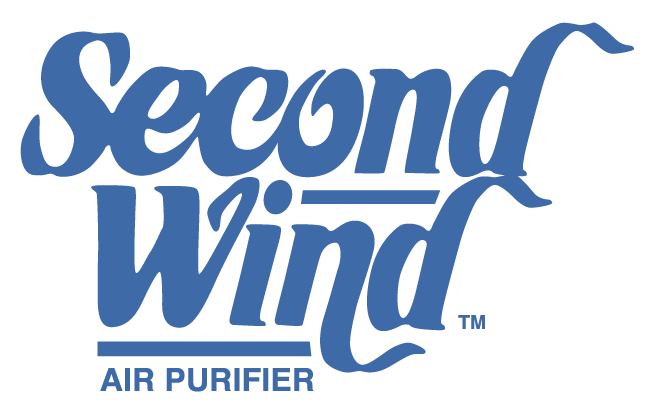Why should indoor air quality be of concern to me?
Environmental Protection Agency Studies show we spend as much as 90% of our time indoors, and that indoor air quality can be up to 100 times more polluted than outdoor air!
Contributing to indoor air quality findings are new home construction methods that provide for more tightly-sealed, energy-efficient homes. We bring pollutants into our homes on our shoes (pesticides, animal waste, plant materials, etc.), our clothes (pollen, pesticides, post-fire ash, etc.) and on other items we bring into our homes (groceries, products we purchase, back packs, workout gear, etc.). We introduce pollutants into our lungs with the cleaning agents, paints, varnishes, paint strippers, drain unclogging agents, glues and other chemicals we use indoors. We bring home germs, viruses and bacteria through interactions with other people. Newer tightly-sealed homes now trap these pollutants indoors; in the air you breathe.
The Center for Disease Control categorizes pollutants into 3 primary categories: 1. Germs (bioaerosols, bacteria, viruses, fungi, pathogens, etc.), 2. Particulates (pet dander, dust, pollen, smoke, dust mites, etc.) and 3. Gases (odors, toxins VOC’s). The Children’s Hospital in Boston research connects air pollution to an increase in insulin resistance; which gives rise to diabetes. Studies by various organizations have proven that poor indoor air quality is linked to many health concerns: diabetes, asthma, allergies, cancer, Alzheimer’s disease, heart disease, weight gain, internal organ damage and respiratory concerns. In fact, the World Health Organization states that 2.4 million people die each year from causes directly attributable to air pollution; 1.5 of these deaths attributable to indoor air pollution. Those with allergies and asthma can attest to the fact that controlling indoor air quality can bring tremendous relief.
Particularly vulnerable are children and older adults. Children breathe faster. They breathe through their mouth, bypassing the filtering effects of the nose. Their immune systems are not fully developed. Their organs are not fully mature. Irritation or inflammation is more likely to obstruct their narrow airway. It may take less of a given irritant to trigger an asthma attack. Exposure to contaminants at its worst can affect development of their nervous, immune, respiratory and endocrine systems.
Consider this:
- Each person inhales over 3,500 gallons of air each day. Children inhale more particles for their size than adolescents or adults. The average person takes 20,000 breaths per day!
- Polluted air causes 94% of all respiratory problems.
- More than 31 million Americans have been diagnosed with asthma, about 1/3 are children under 18.
- About 40,000 dust mites, a common household allergen, can live in one ounce of dust.
- An estimated 10-15% of the entire population may be allergic to cat or dog dander.
- A person sheds up to 700,000 skin flakes per day.
Are there special factors that may indicate a greater need for me to control my indoor air quality? Yes.
- Do you live near a busy highway or road? The UCLA Newsroom said years of breathing pollution near a busy road may increase the risk of developing chronic diseases, respiratory disease, heart attacks, cancer and premature death. And, a large freeway’s pollution can extend as far as a mile and a half from the roadway!
- Are you remodeling your home? Fumes from paint, varnish, paint strippers, wood and other sources are particularly concentrated at this time. Sawdust adds to the already increased regular dust sources. Install new carpet? It takes some time and lots of vacuuming before your new carpet rids itself of fibers that float through the air.
- Have you bought new furniture? Some new furniture may contain formaldehyde.
- Do you live in Florida? Florida (and other states) regularly sprays insecticides for bug control. Do you live near an airport? Look at the residue left on your car after being parked at the airport for a week and you’ll see the falloff from overhead traffic that you breathe.
- What is your occupation? Do you work around a great deal of dust? It is brought into your home. Do you put out fires for a living? Do you work on a farm? Are you an agent for pest control?
- Are there flowering trees and plants in abundance near your home? Pollen counts will be much greater.
- How do you feel? Do you cough a great deal? Blow your nose often? Do your eyes run or itch? Is your throat dry? Is your skin dry, cracked and bleeding? Are you tired all the time? Are you ill often? Do you have regular headaches? Do these conditions refuse to go away over time? Have you already been diagnosed with allergies or asthma? One or all of these may indicate your need for air quality control.
What are the tools of controlling indoor air quality?
Depending on your circumstances, you may desire to install one or more of the following: humidifier, air cleaner, dehumidifier, heat & energy exchange unit and / or a UV air purifier.
What can a humidifier do for me?
When air becomes too dry, moisture is drawn from people, plants, wood, wool, cotton and even your pets. The results can be damaging, expensive, uncomfortable and unhealthy. Giving up moisture to the air can cause; nose bleeds, increased allergy and asthma symptoms, greater occurrences of bronchitis and sinusitis, dehydration, itchy, cracked skin. Dry air increases risk of infection. Your home’s woodwork can crack. Annoying static electricity can harm electronics (requiring pricey repairs or replacement). You may feel colder! Dry air causes gaps in window & door frames that let cold outdoor air in; causing you to turn up the heat and increasing your heating costs! Many doctors recommend humidifiers for allergy and asthma sufferers. Research has shown that 40% to 60% relative humidity is ideal for today’s homes. Outside this range, bacteria, fungi, viruses and mites thrive. Maintaining proper relative humidity provides a comfortable environment for your woodwork, your furniture, your plants, your pets and especially you and your family.
Why would I install an air cleaner?
Any of the single factors mentioned above can indicate the need for an air cleaner. If your current circumstance includes several of the above factors, you should seriously consider installing an air cleaner in your home. Whole house air cleaners are best Vs room air cleaners, as room air cleaners don’t stop contaminants in the rest of the house from circulating everywhere. There are several types of air cleaners that (by themselves or in concert with other types) may work best in your home. Air cleaners, depending on their type can remove part of or all three of the primary sources of indoor air pollution, ensuring the air you breathe is cleaner, fresher and healthier.
What are the benefits of installing a dehumidifier?
If you live in humid climates like Houston, Miami or New Orleans your home may develop mold much faster than other places. If you’ve recently experienced a flood inside your home, ridding your home of moisture is crucial. Exposure to black mold becomes more of a problem in those with allergies, asthma or lung disease. In these people, exposure may lead to respiratory problems such as coughing, wheezing or difficulty breathing. It may exacerbate existing conditions, so it may be seen as a worsening of the original problem rather than related to mold exposure.
A dehumidifier helps to rid your home of excess moisture and keep mold at bay.
Why would I install heat or energy ventilators?
Every home needs ventilation to bring fresh air from the outdoors inside. Introducing fresh air into your home is important,
- To provide enough fresh air to keep the occupants healthy
- To remove odors
- To dilute indoor pollutants
- To lower the indoor relative humidity
ERV/HRV systems are considered a “balanced ventilation systems”. A Heat Recovery Ventilator provides fresh air to your home while “recovering” some of the heat that would otherwise be exhausted to the outdoors. Because only heat is transferred in an HRV, it tends to provide drier air to your home.
An Energy Recovery Ventilator provides fresh air to your home while allowing some of the moisture in the more humid air stream to be transferred to the air indoors.
Why would I install a UV Air Purifier?
Outside the sun delivers UVC energy that protects us from germs, bacteria, viruses, and other destructive bioaerosols. Installed on your HVAC distribution system, UV Air Purifiers imitate the air purifying intensity of the sun to treat your indoor air. UV-C light within UV Air Purifiers acts like the outdoor sun to penetrate the cell walls of the microbe, causing cellular or genetic damage. The affected microbe is neutralized or becomes unable to reproduce. Ultraviolet light possesses just the right amount of energy to break organic molecular bonds. As micro-organisms pass by the UV rays radiated from the ultraviolet lamp, this bond breakage translates into cellular or genetic damage for micro-organisms, such as germs, viruses, mold, bacteria, fungi, etc. This results in the destruction of the micro-organisms.
How do I know if I need one of these products?
Most everyone needs indoor air quality control. Every home needs ventilation. Pay attention to the signs. Do you feel better after you leave your home, and worse again when you come home? Do you have headaches, feel tired, or feel as if you are disoriented?
Does your skin and sinuses feel dry all the time? Is wood cracking? Do you have allergies or asthma? Do you experience electric shocks? Do you have an abundance of hard woods? Is it winter? You probably need a humidifier.
On the contrary, does your house feel stuffy, smell damp? Does it seem as if cloths and bedding never fully dry? Do you have allergies or asthma?Do you have repeated mold and mildew growth? Have you experienced water damage? These are signs you may need a dehumidifier.
Do you get the flu or cold often? Do you experience mold and mildew in your home? Do you have allergies or asthma? Do you have hobbies that involve glues, solvents or chemicals? Do smells take a long time to go away? A UV Air Purifier can help.
ALL homes need ventilation. Often this is not possible due to safety, weather, noise and other concerns. Do you have allergies or asthma? Mechanical ventilation is now becoming a hot topic in new home construction. Bringing fresh, clean air into the home is essential for indoor health and comfort.
Do you live near a dirt road? Do you use your fireplace or light candles often? Do you have hobbies involving wood working, solvents, chemicals, paints, etc.? Do you have allergies or asthma? Do you feel as if you have to dust often? Do you use fertilizers or bug killers? A quality Air Cleaner can reduce particulates in indoor air and make you feel better.








